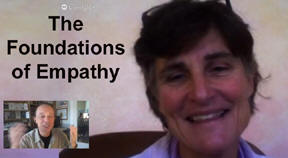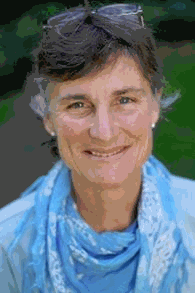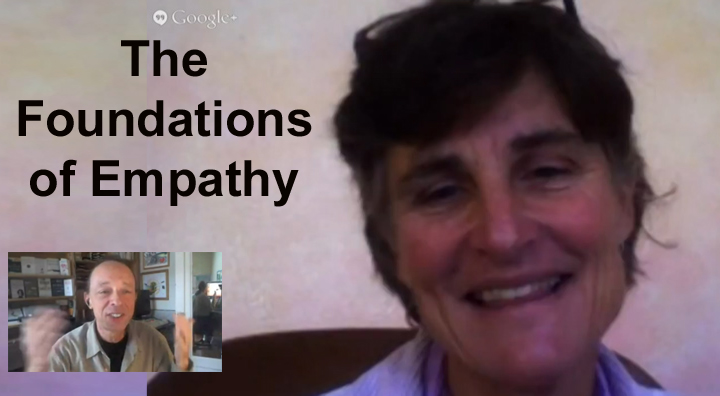|
|
|
Culture of Empathy Builder: Thea Blair
(Video Transcriptions: If you would like to take empathic action and create a transcription of this video, check the volunteers page. The transcriptions will make it easier for other viewers to quickly see the content of this video.)
"I offer an evening presentation or a full blown workshop on this topic. Last October I gave this presentation to the faculty of the Haleakala Waldorf School. They enjoyed it so much they asked me back in February to give the same presentation to the parents of their students as well as a workshop at their teacherís conference. "
"While definitions of empathy vary considerably, the need for mutual understanding between human beings has never been higher. The ability to take the perspective of another and to use this information to act compassionately is a high point in human development. Are we born with this capacity or is it something learned? The simple answer: both. Following the classic storyline of the heroís journey, we are given a gift, we lose it, and we engage in the adventure of getting it back. It is a principle in Waldorf education that we donít simply identify an issue and hammer away on it; we paint the broadest picture possible and work with the factors that support and develop the issue. "
Research Paper: The role of motor development in the development of empathy - August 20, 2013 "Our complex social world requires that we perceive the facial expressions, body postures, gestures, and speech of others accurately and quickly in order to generate an appropriate response. Recent findings in cognitive neuroscience have revealed that the motor cortex, long confined to the role of mere action programming and execution, does in fact play a crucial role in complex cognitive abilities such as the understanding of the intentions and goals of speech and actions of others. It is called the "motor cognition hypothesis" and it postulates that motor cognition provides both human and nonhuman primates with a direct understanding of actions that match their own action skill set (Gallese, et al 2009).
Motor development also aids in the concept of self awareness. This leads to the apprehension that others are intentional agents like the self and ultimately to the direct perception of the self of another. These discoveries open a new perspective on the origins of social understanding. They emphasize the crucial role played by the motor system in providing the building blocks upon which more sophisticated social cognitive abilities can be built (Gallese, et al 2009). The ability to empathize develops with contributions from various biologically and environmentally based factors.
These factors include genetics, child temperament, parenting factors such as warmth, parent-child synchrony, and other qualities of the parentchild relationship, and physical imitation such as facial mimicry and motor imitation, using areas of the brain such as the mirror neuron system and the limbic system (McDonald & Messinger 2009). In this paper I will explore how motor development supports the development of empathic awareness. "
|
|||||||||||||||
|
||||








